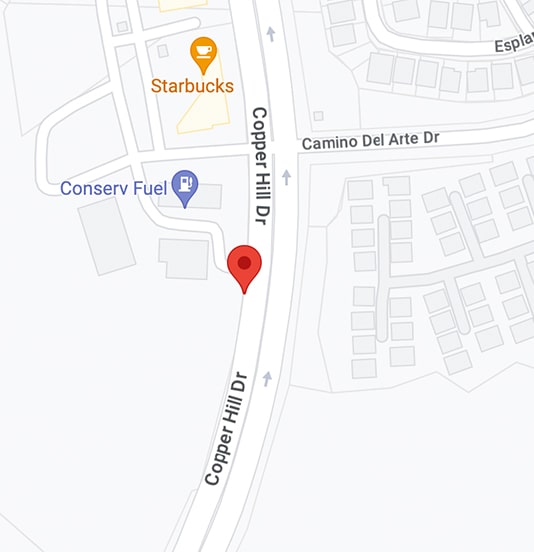Dental emergencies occur suddenly, causing severe pain and discomfort. These could include a broken crown, sudden toothaches, and knocked-out teeth. Taking swift action can protect your tooth from further damage, prevent the onset of an infection, and ensure its survival. Knowing about dental emergencies and what steps to take before visiting the dentist enables you to reduce pain, prevent further complications, and safeguard your oral health.
Defining Dental Emergencies
A dental emergency is any urgent problem affecting teeth, gums, or surrounding tissues that needs immediate attention to stop pain, prevent infection, or save a tooth. Unlike routine dental concerns that can wait for a scheduled appointment, emergencies demand prompt attention to avoid further complications.
Common dental emergencies stem from injuries, severe tooth decay, and untreated oral health issues that rapidly deteriorate. Some dental emergency signs include:
- Severe pain
- Uncontrolled bleeding
- Tissue swelling
- Visible tooth or soft tissue damage
Neglecting these dental problems could result in tooth loss and widespread infections, requiring extensive future dental treatments. If you are unsure whether your situation qualifies as an emergency, it is best to consult a dentist. Taking immediate action will determine whether you save your teeth and protect your oral health.
Common Dental Emergencies and How to Handle Them
Dental emergencies appear unexpectedly, causing severe pain that disrupts your regular activities. Specific injuries need emergency care to prevent permanent harm, but other injuries can be stabilized temporarily until you reach a dentist. Knowing how to respond can mean the difference between relief and worsening symptoms. They include:
Severe Toothache
The continuous, intense pain from a toothache indicates serious dental problems, including tooth decay, infection, or nerve damage. Not treating your pain will result in serious complications, including abscesses and tooth loss.
Rinse your mouth with warm salt water rinses. This will remove bacteria and relieve inflamed tissue in your mouth. You should carefully floss between your teeth to remove food particles that have become trapped. Use only a smooth and soft brush when cleaning your mouth to prevent further irritation.
You should treat the severe pain with over-the-counter pain relievers such as ibuprofen or acetaminophen, although placing aspirin directly on the gum will result in a chemical burn. Applying a cold compress on your cheek for 15-minute intervals can help reduce swelling and numbness.
Persistent or severe pain often indicates a deeper problem, such as an infection that requires immediate dental care. If the pain worsens or is accompanied by swelling, fever, or a foul taste in the mouth, seek emergency treatment immediately, as these may be signs of an abscess or spreading infection.
Knocked-Out Tooth
Loss of a permanent tooth due to an accident or injury is a serious dental emergency. A knocked-out (avulsed tooth) needs immediate attention because its survival chances reduce significantly with each passing moment. The tooth can survive when reinserted into its place when professionals treat it within 30 to 60 minutes. A delay in treatment could result in permanent tooth loss and may require you to install dental implants or bridges for replacement.
Handle the tooth carefully by holding it only by its crown (the visible white part) and avoid touching the root since it contains vital fibers needed for reattachment. If the tooth is dirty, wash the contaminated tooth with milk or saline solution. Avoid cleaning the tooth with soap, and refrain from scrubbing and drying it.
Try to place the tooth back into its original socket, then gently bite down on a clean cloth to maintain its position. If you cannot put it back, the tooth should be preserved in milk or saliva instead of water because water can harm the root cells. Seek emergency dental care immediately. The success rate for reattaching the tooth increases when it receives prompt repositioning and stabilization treatment.
Chipped or Broken Tooth
A chipped or broken tooth can range from a minor cosmetic issue to a serious dental emergency, depending on the severity of the damage. Small chips result in tooth sensitivity and rough edges. At the same time, more extensive fractures expose the inner layers of the tooth, enabling bacteria to penetrate the tooth layers, which may lead to pain and infection and eventually result in tooth loss if treatment is delayed.
You should rinse your mouth with warm water. This will help remove food debris, which minimizes the chance of an infection developing. Take care when dealing with broken edges, which may cause tongue or cheek injuries. The broken tooth fragments should be stored in milk or saliva before you visit your dentist because, at times, they can be reattached.
You should also apply a cold compress to the affected facial area; this helps reduce swelling and numbing discomfort. If the tooth is still bleeding, apply gentle pressure using clean gauze or a cloth to stop the bleeding. Do not bite down on the damaged tooth because this can cause further breakage.
Visit a dentist immediately after the incident. Minor-looking tooth damage can weaken the tooth structure. It can also lead to infections. Your dentist will examine the damage extent before recommending the best possible dental care service between bonding, crowning, or root canal procedures.
Lost Filling or Crown
When a filling or crown falls out, the underlying tooth is exposed, making it vulnerable to sensitivity, decay, and further damage. The tooth will deteriorate when untreated, eventually resulting in infection or requiring advanced treatment.
When a filling comes out, you should avoid biting into that area and protect the exposed tooth with sugar-free gum or temporary dental cement, which you can obtain at drugstores. The temporary protection of sugar-free gum or dental cement on the tooth helps prevent bacteria and food particles from entering while you wait to see a dentist.
You should try to place the detached crown back on the tooth by applying dental adhesive or toothpaste as a short-term solution. Avoid using glue or any adhesive that is not dental because these substances can cause harm to your health. If you cannot attach the crown back, place it in a clean container until you visit your dentist.
Regardless of whether you are in pain, seek dental care promptly. A missing filling or crown leaves the tooth weakened and prone to further damage, so professional treatment is necessary to restore and protect it.
Abscess or Gum Infection
A dental abscess is a severe infection that develops around the tooth roots or gum tissue because of untreated cavities, gum disease, or traumatic incidents. The infection can lead to intense pain and substantial facial swelling, which could become fatal when it spreads throughout the body. Immediate medical intervention is crucial to stop further harm to the affected area. You should look for Infection signs such as:
- Continuous throbbing pain
- Gum swelling
- Fever
- Pus discharge
- An unpleasant mouth taste
If you notice these symptoms, do not ignore them, as an abscess will not heal on its own and requires urgent care.
You should rinse your mouth with warm salt water multiple times per day. Warm, salty water pulls bacteria from the mouth and also helps reduce inflammation. Ibuprofen and acetaminophen available at drugstores help with pain but cannot eliminate the infection.
Do not try to drain or pop the abscess because this will cause bacteria to move deeper into your tissues. Head straight to emergency dental care as soon as possible. Your dentist may drain the abscess, prescribe antibiotics, or perform a root canal or tooth extraction, depending on the severity of the infection.
Seek emergency care at the nearest hospital if you experience facial swelling, breathing difficulties, or a high fever because the infection might have spread past your mouth.
Broken or Dislocated Jaw
A broken or dislocated jaw is a serious dental emergency that requires immediate medical intervention. A jaw fracture or dislocation results from traumatic events, including falls, sports-related injuries, and car accidents. The symptoms of a broken or dislocated jaw include:
- Extreme pain
- Jaw swelling
- Impaired mouth movement
- Misaligned jaw structure and dental position
You should seek medical help immediately when you detect signs of a jaw fracture or dislocation. Self-realignment attempts should be avoided. To prevent movement, you should stabilize the jaw by wrapping a scarf, bandage, or cloth around your head and under your chin. Place a cold compress on your jaw to help minimize swelling and pain.
Seek emergency medical care immediately. For successful healing, a broken jaw needs medical imaging tests, jaw realignment procedures, and surgical intervention. Seek emergency medical assistance at the closest hospital if you experience either breathing problems or uncontrolled bleeding.
Soft Tissue Injuries (Lips, Gums, Cheeks, or Tongue)
Injuries to the mouth's soft tissues, such as the lips, gums, cheeks, or tongue, can result from falls, sports injuries, accidental bites, or sharp foods. Abundant blood flow in the mouth causes heavy bleeding, making injuries seem more severe than they are, even though the damage might be minimal. Deep cuts and uncontrolled bleeding need urgent medical care.
A soft tissue injury requires rinsing your mouth with warm salt water to clean the wound and decrease bacterial growth. Use a clean cloth or gauze to put mild pressure on the wound to stop bleeding. If bleeding continues beyond 10 to 15 minutes, you should visit an emergency facility.
Place a cold compress on your face near the affected area to manage pain and swelling. If the wound is deep, has ragged edges, or was caused by a sharp object, visit a dentist or urgent care center to determine if stitches or further treatment are necessary.
When to See an Emergency Dentist
Not all dental problems need urgent care; however, there are specific warning signs that point to emergencies that require you to seek professional intervention. Postponing dental care can worsen pain symptoms and infections that could cause permanent tissue damage. You need to visit an emergency dentist right away if you notice these symptoms:
- Prolonged and intense pain that is persistent even after taking OTC medications
- Uncontrollable bleeding from the gums, tongue, or soft tissues
- A knocked-out permanent tooth requires immediate attention because treatment during this period boosts the possibility of saving the tooth
- A spreading infection can be detected through swollen areas in your face, jaw, or gums
- An abscess requires urgent medical attention because it causes mouth odor and pus discharge
If you are uncertain whether your situation qualifies as an emergency, calling your dentist for guidance is always safer. Postponing dental care will result in the loss of teeth and necessitate more complex treatments or life-threatening situations.
Preventing Dental Emergencies
While some dental emergencies are unavoidable, many can be prevented with proper oral care and protective habits. Taking the right precautions can reduce the risk of sudden pain, injury, and costly treatments. They include the following:
Maintain Good Oral Hygiene
Brushing daily with fluoride toothpaste and flossing protects your teeth from decay and gum disease, which are the primary reasons for dental emergencies. Professional cleanings that remove plaque and tartar help decrease the risk of infections and the development of abscesses.
Visit Your Dentist Regularly
Regular visits to the dentist enable professionals to identify minor issues that could become severe dental problems. Early intervention for cavities, fractures, and gum disease treatment helps avoid emergency dental procedures.
Wear a Mouthguard for Protection
Contact sport participants and night-time teeth grinders should use custom-fitted mouthguards to protect their teeth from fractures, chips, and tooth loss. A good quality mouthguard investment today will help you avoid future dental treatment expenses.
Avoid Chewing Hard Foods
Biting hard substances such as ice, popcorn kernels, and hard candy often results in tooth fractures. Using teeth to open packages or bottles can lead to severe dental damage. Being mindful of what you chew helps prevent unnecessary injuries.
Find Emergency Valencia Dental Services Near Me
Dental emergencies, from lost crowns to broken teeth, deserve a quick response. If you are in pain, missing a tooth, or experiencing facial swelling, seeking immediate treatment can prevent further damage. Failing to act right away may lead to infection, tooth loss, or expensive future dental procedures. For expert emergency dental services in Santa Clarita, contact Valencia Dentist at 661-775-7717.




